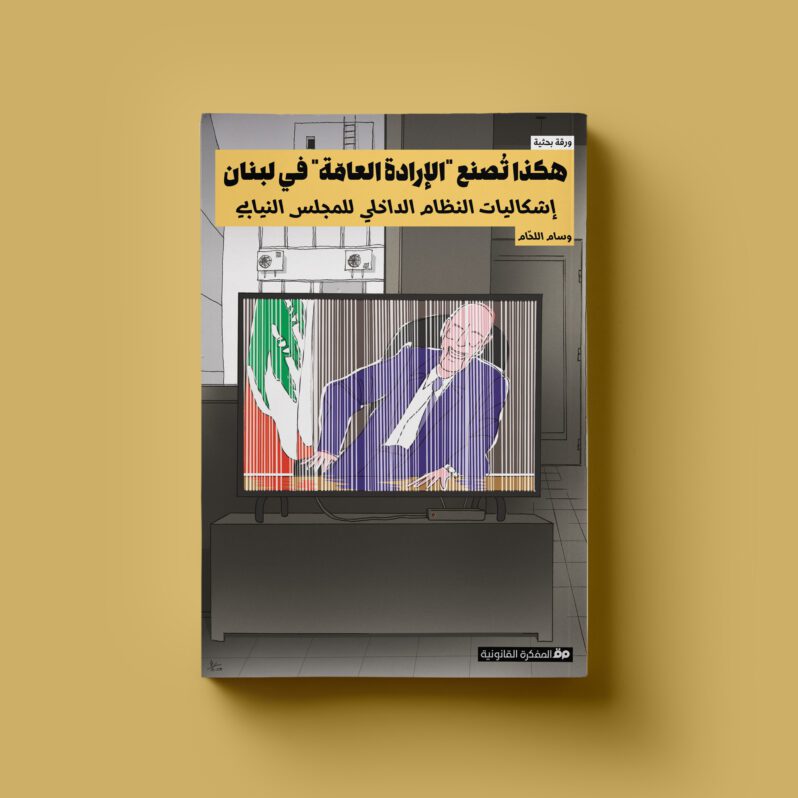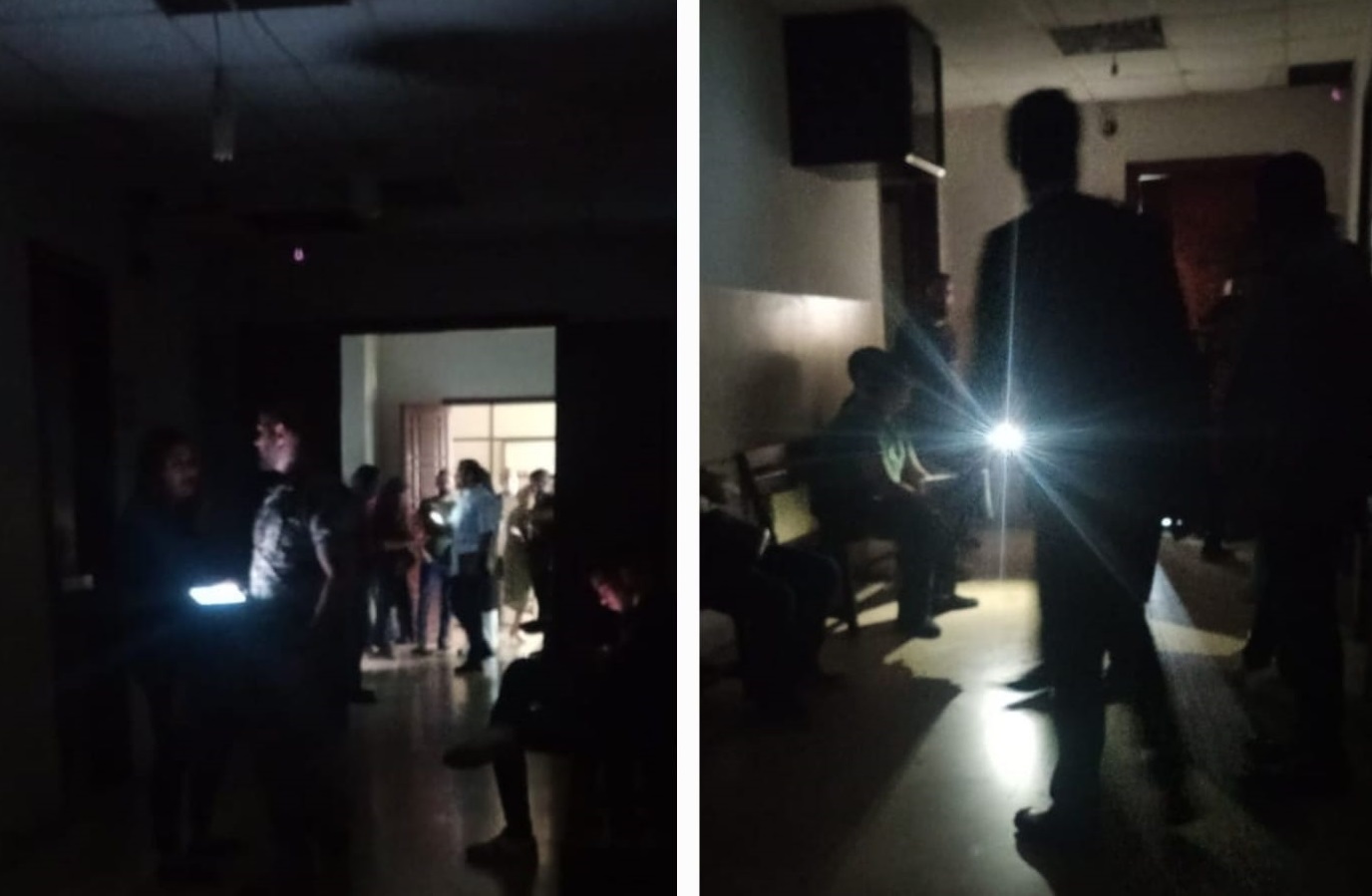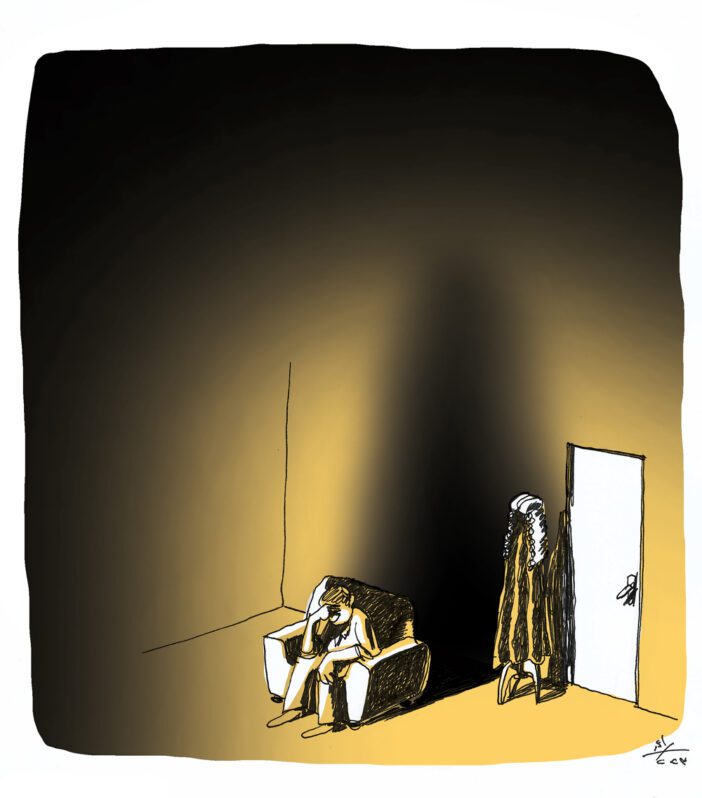The Venice Commission: Adwan’s Proposal Violates Judicial Independence and Fair Trial

Recently, the Venice Commission (VC) published its advisory opinion on the Administrative Judiciary Regulation Bill, which was presented by MP Georges Adwan in July 2021 and prepared by the State Council President Judge Fadi Elias. The opinion was definitive, deeming that the bill’s most prominent provisions run counter to international standards for judicial independence and fair trials, which is the same conclusion that the Legal Agenda (LA) and the Independence of the Judiciary Coalition (IJC) reached in their assessment of it. The VC’s opinion not only addresses the bill’s content but also criticizes the way it is formulated, recommending that its structure and coherence be improved. Perhaps the most serious and significant criticisms that the VC delivered are those concerning the inflated power that the bill grants to the State Council president – the very same person who drafted it single-handedly, i.e. without the input of the other State Council judges – as they raise a serious question about the bill’s purpose and the interests it aims to preserve.
Note that the effort to reform the administrative judiciary began with an initiative by the LA as part of its project to reform the judicial bodies. The LA prepared the Independence and Transparency of the Administrative Judiciary Bill after identifying, in a special issue, the problems afflicting this judiciary. While this bill was presented in March 2021 by MP Osama Saad in cooperation with the IJC, Adwan endeavored four months later to present a second bill on the same subject, which had been hastily prepared by the State Council president. After the 2022 elections, parliamentary work on reforming the administrative judiciary commenced via the establishment of a subcommittee of the Administration and Justice Committee presided over by MP George Okais. Although both Saad and Adwan’s bills were referred to the subcommittee, Okais constantly gave Adwan’s bill precedence, treating it as the official bill while suppressing Saad’s bill. The Ministry of Justice then did the same by submitting to the VC a request for advice on Adwan’s bill alone without even mentioning the other bill. The VC raised this point in Paragraph 21 of its opinion, mentioning that it was aware that the subcommittee is examining a second bill prepared by the Legal Agenda simultaneously with the bill that had been presented to it.
In light of this opinion and, specifically, the harsh and substantial criticisms that the VC directed at Adwan’s bill, the parliamentary subcommittee will find it awkward to continue giving Adwan’s bill precedence. Doing so would cast serious doubts over the intended purpose of the legislation and whether it aims to actually reform the judiciary and ensure its independence or just to strengthen control over the judiciary’s work under the guise of ensuring its independence and by enacting deceptive legislation.
Before explaining the most important parts of the opinion, we must point out that the VC had already delivered another advisory opinion on 20 June 2022 concerning the independence of the judicial judiciary and that the Administration and Justice Committee and Ministry of Justice totally ignored its recommendations without any discussion of them. That did not stop them from requesting its opinion again with regard to the administrative judiciary.
No External or Internal Independence
The VC not only examined the bill’s conformity with principles of external judicial independence (particularly its independence from the executive branch) but also stressed the need to ensure internal independence. In the opinion, the VC recalled that “judges should be independent and impartial in their decision-making and capable of acting without any restriction, improper influence, pressure, threat or interference, direct or indirect, from any authority, including ‘authorities internal to the judiciary’” and that “the accumulation of considerable powers in the hands of the President of the State Council jeopardizes the internal independence of the administrative judiciary and risks further ‘closure’ of the system”. The VC addressed internal independence several more times, including in its final recommendations. It focused on this aspect of independence because the bill enshrines unprecedented hierarchy within the administrative judiciary by multiplying the State Council president’s powers, which are already inflated in the current text. It explicitly stated in the body of the opinion that the State Council president enjoys “far reaching powers” since they act as “supreme judge over all administrative, financial and disciplinary matters”. In reality, strengthening this hierarchy constitutes an impingement on not only internal independence but also external independence as the State Council president is appointed (as noted in Paragraph 40 of the VC’s opinion) by the executive branch without the council playing any role, even advisory, in this regard. In other words, any increase of the State Council president’s hierarchical authority enables, in practice, the executive branch (and the political forces it represents) to control the administrative judiciary through this figure, just as it controls the Public Prosecution offices via the extraordinary powers granted to the cassation public prosecutor (whom the LA has described as the “superman of the judicial system”).
In an article published in 2020 under the title “Hierarchy in Lebanon’s Administrative Judiciary: Rights from Above”, the LA discussed the danger of hierarchy and its manifestations inside the State Council and deemed reducing it to be one of the most important points in the rationale of its bill. Making Adwan’s bill even more problematic in this regard is the fact that it was prepared by the State Council president himself, as previously explained. This constitutes a conflict of interest and raises questions about the balance adopted in the bill between public interest and a private interest. It is as if the State Council president is enthroning himself emperor of the administrative judiciary in the name of reforming it.
The most important concerns that the VC raised in this regard include the following. Firstly, eight of the ten members of the Supreme Council of the Administrative Judiciary [which the opinion labels the “High Council of Administrative Justice” and is hereinafter referred to as the “supreme council”] are appointed by the executive branch, and five of those members are proposed specifically by the council president. This guarantees the hegemony of this figure, as well as the executive branch, over this council and precludes a true balance inside it, contrary to “European standards”. The VC recommended that no less than half the members be elected by their peers so that the council is “protected from encroachment by the legislative and executive powers” and its independence guaranteed. Hence, it lamented the choice to make only two members elected judges and to limit representation of the first-instance courts to two appointed members, which contradicts the principles of judicial independence and prevents a balanced representation of judges.
Secondly, vast powers are granted to the State Council president: this figure is the president of the supreme council and presides over the Cases Council, Administrative Chamber, Full Bench, and Dispute Resolution Court. They also influence election and appointment procedures in the supreme council by “monopolis[ing]” the right to propose five of its ten members. Moreover, they haves the right to add written remarks to any administrative judge’s personal file outside the context of any disciplinary procedure, control appointments in the administrative courts, make decisions about assigning judges to functions in public administrations, approve the arrest of any judge for committing a crime or misdemeanor not related to the job, decide on urgent cases in summary proceedings, and refer any case from the chambers to the Cases Council, which they preside over. All these powers prompted the VC to label them the “supreme judge”, as previously explained.
The VC’s assessment of the bill is reflected by its concluding recommendations: besides mentioning the need to increase the number of supreme council members elected by their peers (to at least half the members), ensure better representation of junior judges and judges from lower-level courts, add non-judge members, and provide a mechanism for partial renewal of the council’s composition, it also stressed that the powers of the council’s president should be reduced.
No Personal Safeguards for Judges with Respect to Their Careers
The VC also assessed the extent to which judges enjoy independence in their careers, from their appointment as judges to the mechanisms for disciplining them. Its most important concerns in this regard include the following:
- Judges may be assigned to advisory functions in public administrations. The VC deemed the controls that the bill places to be insufficient to protect judges from the possibility of such assignments turning into a tool to punish or control judges. More importantly, it stated that no judge should be allowed to perform such functions while also performing judicial functions. The LA has called for the assignments mechanism to be abolished, arguing that it infringes on the separation of powers and independence of judges, constitutes a blatant conflict of interest, opens the door for discrimination among judges contrary to the principle of equality among them, strengthens the hierarchical authority of the State Council president (who can assign or withhold assignment from whomever they please), and impacts public trust in the State Council, fair trial guarantees, and the effectiveness of the courts’ work, especially in light of the current vacancies.
- Decisions can be issued declaring trainee judges’ incapacity without them having the opportunity to challenge such decisions. In this regard, the VC recommended defining the basic criteria for determining this capacity, as well as ensuring that such decisions by the supreme council can be challenged.
- Administrative judges are denied the right to challenge decisions that impact their careers, including appointments, evaluations, transfers, decisions to deny promotion or add negative remarks to personal files, and disciplinary decisions. It recommended enshrining judges’ right to challenge such decisions before an impartial and predetermined judicial authority (a “permanent court of law”). In this regard, it dwelled in particular on the restriction of disciplinary trials at the first-instance and appellate levels to authorities that are part of the supreme council. Judges have no recourse to an authority independent from this council.
- The grounds for discipline are vague, and the bill establishes a vast array of disciplinary sanctions without any mention that the sanction should be proportionate to the gravity of the infraction. The VC dwelled in particular on several behaviors that the bill classifies as disciplinary infractions, especially the “obligation of reserve” and “acts affecting honor, dignity or morals”, and deemed the description of them to be vague and open to interpretation. Hence, it recommended defining them more precisely.
- Finally, the VC brought up the principle of judges’ irremovability (Paragraph 62), which is an international standard from which Adwan’s bill totally deviates.
Ensuring Sufficient Judicial Manpower
The VC also addressed the shortage of judges (it stated that there are currently 50 administrative judges without specifying the source of this information, which we cannot be certain is correct). It questioned the feasibility of establishing administrative courts in the nine governorates given this shortage. It also questioned whether this shortage can be rectified within a reasonable period and, therefore, whether the bill could be implemented within the six-month timeframe that it stipulates, especially given the financial crisis. The fact that the VC dwelled on this issue reflects its desire to avoid an unrealistically ambitious legislation, especially as the first-instance courts legally prescribed in 2000 have remained ink on paper because the State Council Bureau and Ministry of Justice have refrained from establishing them on the basis that there are not enough judges.
The LA has repeatedly discussed this argument, explaining that it is a pretext manufactured by the authorities to justify their inaction owing to their failure to hold competitive exams to recruit new judges throughout the 2000-2010 period. Hence, the LA’s bill stipulates that exams must be held annually until the vacancies are filled. The VC reiterated the importance of this point, calling for the authorities to think seriously about establishing a first-instance court in Beirut as the first phase, pending the availability of more judges. While adopting a realistic legislation is important, it is still possible – as a first phase – to establish a limited number of chambers for the governorates. Judges of a single first-instance chamber could, for example, be tasked with adjudicating disputes in multiple governorates, and it would be fine for the judges of these chambers to sit in Beirut until appropriate local workplaces are found.
Breaching Fair Trial Conditions
As the LA has repeatedly pointed out, reforming the administrative judiciary requires not just amending the provisions governing it to ensure its independence but also amending its trial procedures to bring them in line with fair trial conditions.
In this regard, the VC emphasized three fair trial conditions. The first is the principle of the natural judge. In this regard, the VC extensively described the prevailing practice whereby a chamber president single-handedly appoints the ruling bench for a given case from among the chamber’s auxiliary judges. The VC also relayed practices documented by the LA whereby chamber presidents sometimes conduct these appointments just days before the final ruling is issued or change members during the trial at their own discretion and in the absence of any controls or obligation to explain the change. Such practices also usually prevent litigants from knowing who the members of the ruling bench are and hence from requesting that a member be disqualified when there are grounds for legitimate doubt about their impartiality.
In sum, the VC welcomed the bill’s inclusion of an article obliging chamber presidents to appoint the members of the ruling bench within three days of the case being filed with the State Council’s registry, pursuant to the natural judge principle. On this matter, both Adwan’s and Saad’s bills are in agreement. However, the VC also recommended introducing an elaborate system for distributing work and cases that accords with international standards. While the opinion does not mention that the bill should include an explicit provision prohibiting a chamber president from changing the ruling bench’s members in order to counter the practice it described (something that is included in Saad’s bill), this is only because the VC assumed that the natural judge principle prevents such changes. It defined this principle clearly in Footnote 69 of its opinion, which literally states that this principle precludes changing the members of any ruling bench arbitrarily during the proceedings of a case. This footnote constitutes an important contribution to correcting the course of the work of the subcommittee, whose members recently split between a majority in support of the power to change bench members and a minority opposed to it.
The second is the publicity of trials. In this regard, the VC stressed the need for public trials and explained the exceptional instances in which trials may be conducted in secret. Following this recommendation would constitute a significant improvement in the view of the LA, which has deemed it one of the most important criteria for reforming the administrative judiciary. Note that the LA recently managed to prompt the subcommittee to go back on its exclusion of the publicity principle.
The third is the principle that State Council decisions be open to comment and criticism even before the final rulings on the cases they concern are delivered. On this basis, the VC dwelled on Article 25, which deems any such comment interference in the judiciary punishable with up to three years of imprisonment. It called for this concept and the scope of the article to be clarified as it is open to abuse and threatens freedom of expression.
The Legislative Methodology
Finally, we must examine some of the observations that the VC’s opinion included about the methodology of the legislation, including the technique and mechanisms adopted in the discussion of the bills and orientations proposed.
Regarding the legislative technique, the VC criticized in several places the bill’s inclusion of very long articles filled with unnecessary details, its inclusion of repetitive articles, and its scattering of certain provisions throughout the text instead of presenting them in a streamlined manner. Hence, the VC went as far as to remind the State Council president, along with Adwan and the subcommittee, of the golden rules for structuring and formulating bills, the most important including that “an article should not contain more than three paragraphs”, “a paragraph should not contain more than three sentences”, and “a sentence should not contain more than one idea”. Consequently, its final recommendations included a call for the public authorities to improve the structure of the bill and ensure that it is coherent.
Regarding the legislative process, the VC stressed the need to include civil society, experts, and academia more extensively in the legislative effort, whether inside the subcommittee or outside of Parliament, in a manner that makes the reform akin to a social achievement and helps strengthen public trust in the administrative judiciary. While the subcommittee continues to refuse to lift confidentiality from its work, the Justice Forum will hopefully constitute a suitable framework for such broad discussions.




